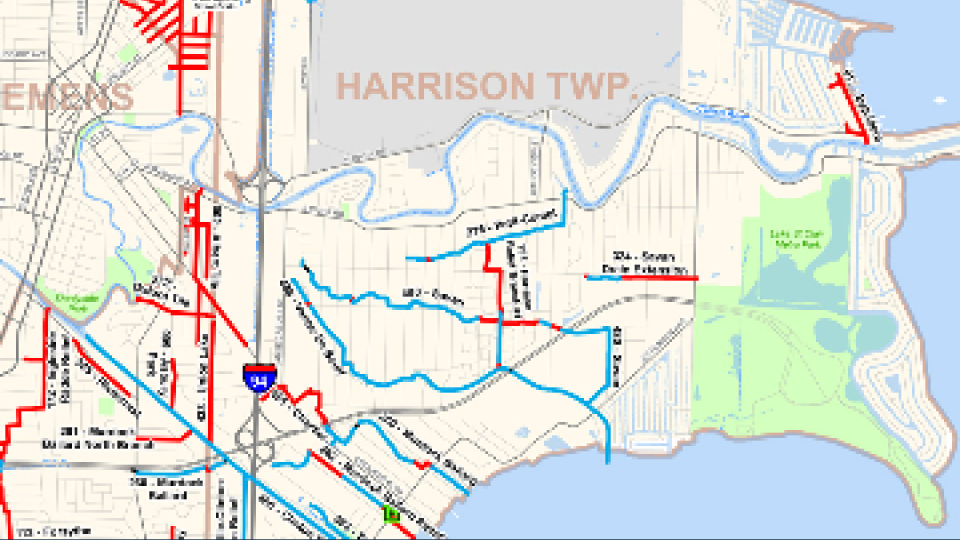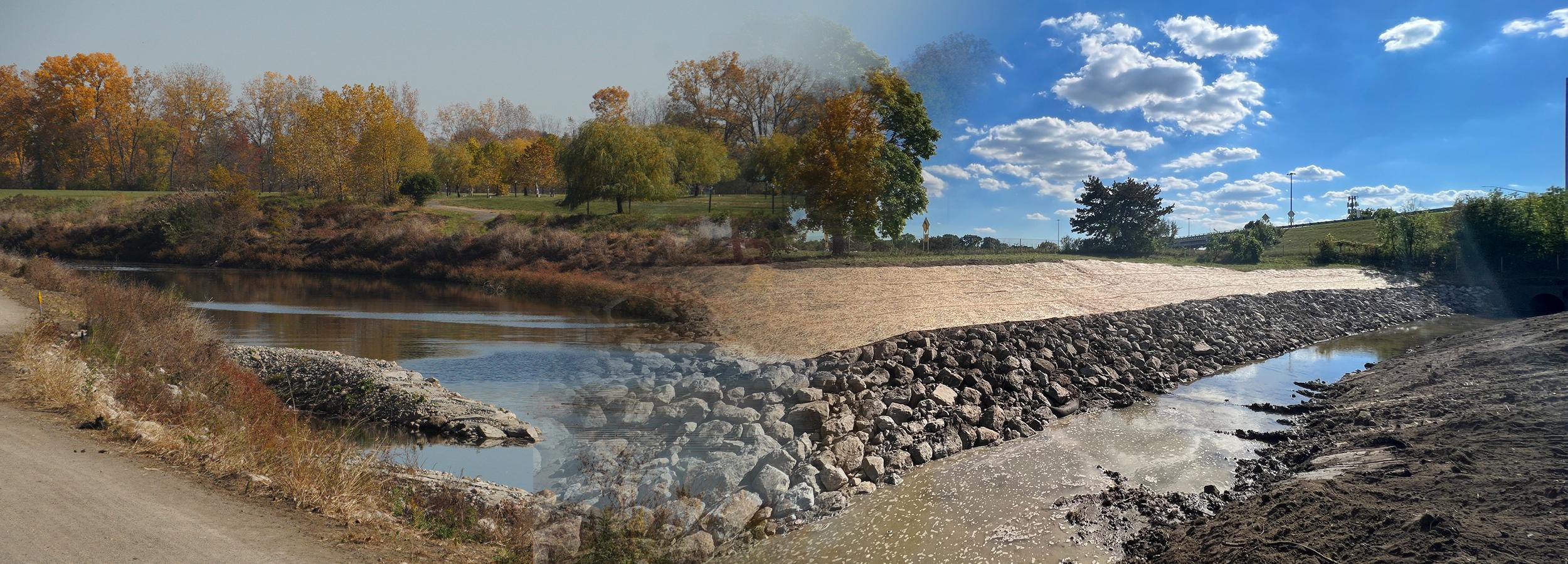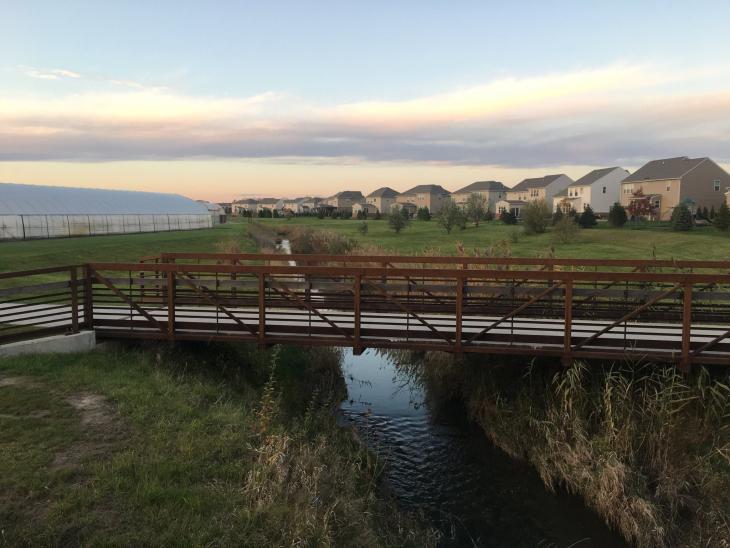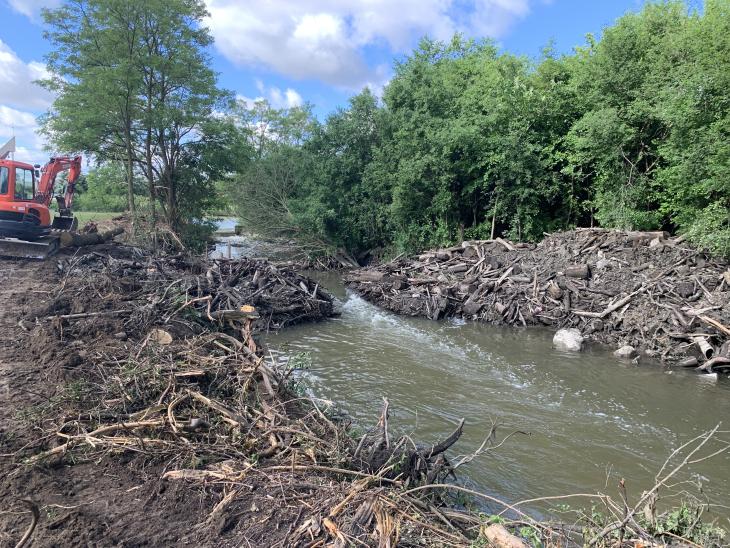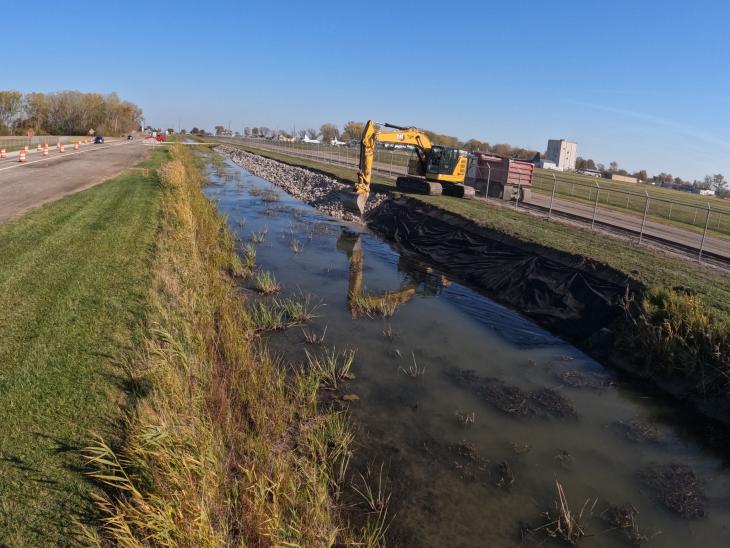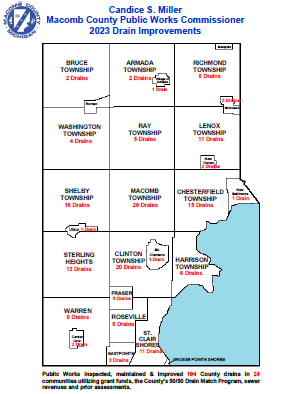The Public Works Office manages about 475 drains in the County. About half of these are open drains – some appearing as small creeks or streams, others are ditches that only fill after a rainfall. The other half are enclosed drains — underground pipes generally found in older communities. All of these storm drains eventually transfer water to Lake St. Clair. The Public Works Office has launched a new drain maintenance program to remove beaver dams, trash and other debris from the open drains, in order to allow water flow to move without hindrance. This effort reduces soil erosion and reduces localized flooding. In the enclosed drains, inspection and testing efforts are ensuring the integrity of the pipes and making certain that sanitary sewage is not entering the drain – and ultimately ending up in Lake St. Clair.
Ongoing drain maintenance by the Macomb County Public Works Office helps ensure proper drainage, reduces the risk of flooding, and improves water quality.
Logjams and debris can impede the flow of storm water and snow melt in any of the 401 miles of open drains – streams, creeks and other open channels – under the MCPWO’s jurisdiction. Those obstructions can erode the banks, causing more trees to fall into the water and increases the risk of flooding. Natural debris also causes algae problems which impacts water quality.
In 2017, Public Works Commissioner Candice S. Miller launched a new program in which funding from the Macomb County Board of Commissioners is matched by local municipalities to pay for the clean out of logjams, debris or other smaller problem spots in open channel drains that are under the jurisdiction of the Macomb County Public Works Office in their respective city, township or village.
MCPWO contacts each township supervisor, city manager and village president each year to chart out a plan of work to tackle small blockages in drains or areas of local flooding. This program lets our dollars go farther by sharing costs between the Public Works Office and the community as we address those issues
Thanks to the yearly allocation that the county Board of Commissioners has made toward this program in their budget.
Funding from grants and prior assessments to inspect, maintain and improve our drains have also been used.
Recent drain maintenance projects
2023 drain improvements
